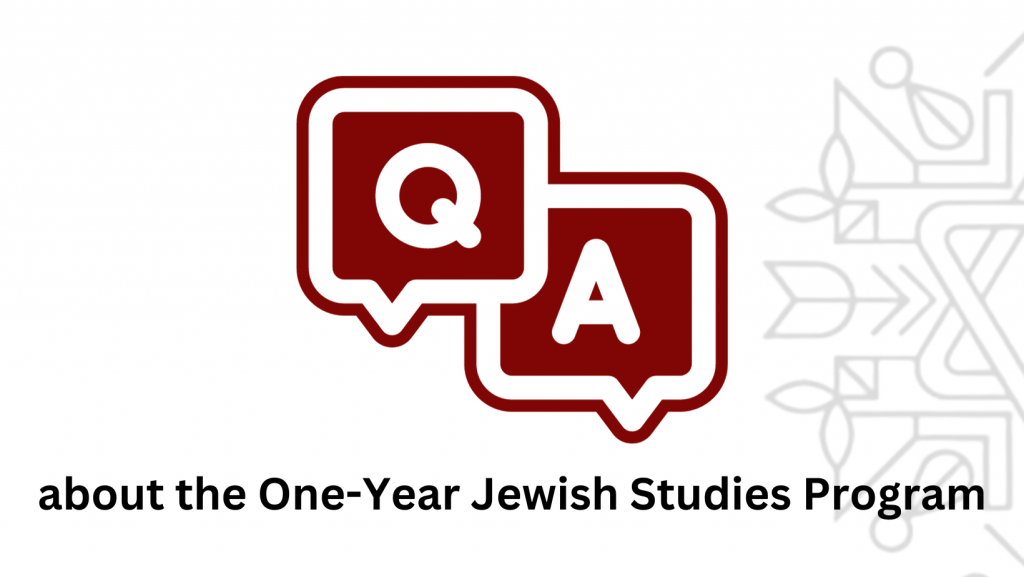
INSTITUTE
- Is Paideia affiliated with any branch of Judaism?
Paideia is a pluralistic, non-denominational institution, promoting inclusiveness, a variety of expression and critical thinking. Paideia has among its graduates people with Jewish and non-Jewish backgrounds.
ADMISSION TO THE ONE-YEAR PROGRAM
- What are the eligibility requirements?
Applicants should have a Bachelor’s degree in the moment of the start of the studies (September).
That means that you can apply even if you don’t have the diploma yet.
The BA should be done within social sciences, law, humanities, theological (academic) studies, education or other sciences that include academic courses in literature, philosophy, history, religious studies, gender studies and the arts. - What are the acceptance criteria?
A qualification that is taken into account in the acceptance process is the documented interest in Jewish culture in Europe, including community, academic and/or institutional work, as well as a disposition to contribute to European Jewish life and culture in a broad sense, be it within academia, working life, lay leadership, project initiation or volunteering. - What does the admission process look like?
The first step in the admission process is to complete the online application on the Paideia website and submit the required documents.
Upon receipt of the completed application with the required documents, Paideia will consider the prospective student for an interview and will notify the applicant of its decision.
Once the interviews have been conducted, Paideia determines the acceptance of students and the applicants are notified about the results. In case of the large number of applicants, the candidates may also receive information that they are placed on the waiting list and will be notified about the change of decision as soon as a place opens up. - How many students participate in the One-Year Program?
Paideia admits approx. 25 students to the One-Year Program each year. - Is there an age limit of acceptance?
No, there is no age limit. - Do I need any Hebrew knowledge?
No, Hebrew is given at Paideia on 3 different levels, from beginners to advanced. There is a placement test during the first two weeks of studies. - I am not a EU citizen and got accepted to Paideia. Do I need a residence permit to study in Sweden?
Yes, if you have been accepted to Paideia, as a non EU citizen you need to have a residence permit to study in Sweden. Check your case carefully and consult the Swedish Migration Office if you have any doubts. If you need to apply for a residence permit through Migrations Office, you can do it through here: https://www.migrationsverket.se/English/Private-individuals/Studying-in-Sweden/Other-studies.html
Remember to apply as being accepted to “Other type of studies”.
PAIDEIA SCHOLARSHIP
- Am I eligible for a scholarship?
The students accepted to the OYP have a possibility to receive a Paideia scholarship based on professional merit. The scholarship holders must actively contribute to strengthening Jewish life and culture in Europe and have the potential to continue to do so in their future work. Scholarships are mainly awarded to students contributing to the revival of Jewish Life in Europe. The number of scholarships is limited.
- What is included in the scholarship?
The scholarship includes tuition-free studies, a study trip to Israel and a monthly stipend of approximately 900€ per month to cover rent and living costs for the time of studies in the One-Year Program. Any other costs (e.g. travel, insurance etc.) students must cover themselves.
- Can I combine various scholarships?
No, candidates who are entitled to state support such as the Swedish CSN are not eligible for Paideia scholarships.
- If the scholarship is not awarded, is there a tuition fee for the program?
Candidates may still be accepted to the program without scholarship. Participation is free of charge, the only cost that might be incurred is the Israel study trip expenses.
INSURANCE AND ACCOMMODATION
- Does Paideia offer insurance?
No, the students must get their own insurance that will cover healthcare and civil liability. The health insurance needs to cover the study trip to Israel.
- Can Paideia offer accommodation?
Yes, Paideia can offer accommodation to students with granted scholarships.The accommodation will be located in the Greater Stockholm’s Area and consist of a separate room in a private tenants’ house. The kitchen and the bathroom might be shared, WIFI is included. The housing agreement is signed between the tenants and Paideia.
- What is the rental cost?
Paideia deducts approx. half of the scholarship to cover rent, WIFI, electricity and water expenses.
- Can I organise my own accommodation?
Yes. If you are granted a scholarship, Paideia will not deduct rental expenses, you will be given 100% of the stipend.
PROGRAM STRUCTURE
- How does the structure look like?
The program comprises of two study modules:
– Module I comprises yearly long courses: Hebrew language course, taught at three levels: beginners, intermediate, and advanced, Methodology of Talmud, and Parashat ha-Shavua. These courses begin in September and span 9 months to May.
Module I also includes individual project work, presentations, independent study, and workshops. If possible to organise, it also includes the study trip to Israel.
– Module II comprises short-term courses in the field of Jewish studies. They are given in one or two-week-long blocks. Completed courses award either 2 or 3 credits, depending on the duration of the course. All credits are based on the equivalence to ECTS.
READING MATERIALS
- How do I access reading materials?
Each course includes reading material passed to students in PDFs before the course starts.
EXAMINATION
- How many exams are there and what is their form?
Each course at Paideia ends with a short examination. The form of examination varies between courses (written assignment, oral examination, presentation etc.). The students are expected to demonstrate both an overview of a given subject as well as links between related areas. The students are also assessed for their participation in seminars, group work, Hevrutah studies, and presentations throughout and at the end of each course. - Can I skip any examination?
Yes, students are allowed to skip four exams (no more than 12 ECTS total). - What is the grading system?
The grading of each course is based on the student’s fulfilment of the learning objectives specified in the One-Year Program Course Catalog. Students who have been approved on a course, receive a course grade in accordance with the scale 1 (Very Good), 2 (Good), 3 (Satisfactory), 4 (Sufficient), 5 (Fail).
PAIDEIA GRADUATION CERTIFICATE
- Will I receive a certificate upon finishing Paideia?
In order to receive the Paideia graduation certificate, the student must earn 60 credits of two major teaching/learning modules.
The student who has fulfilled the academic requirements for the OYP is entitled to receive Paideia graduation certificate.




